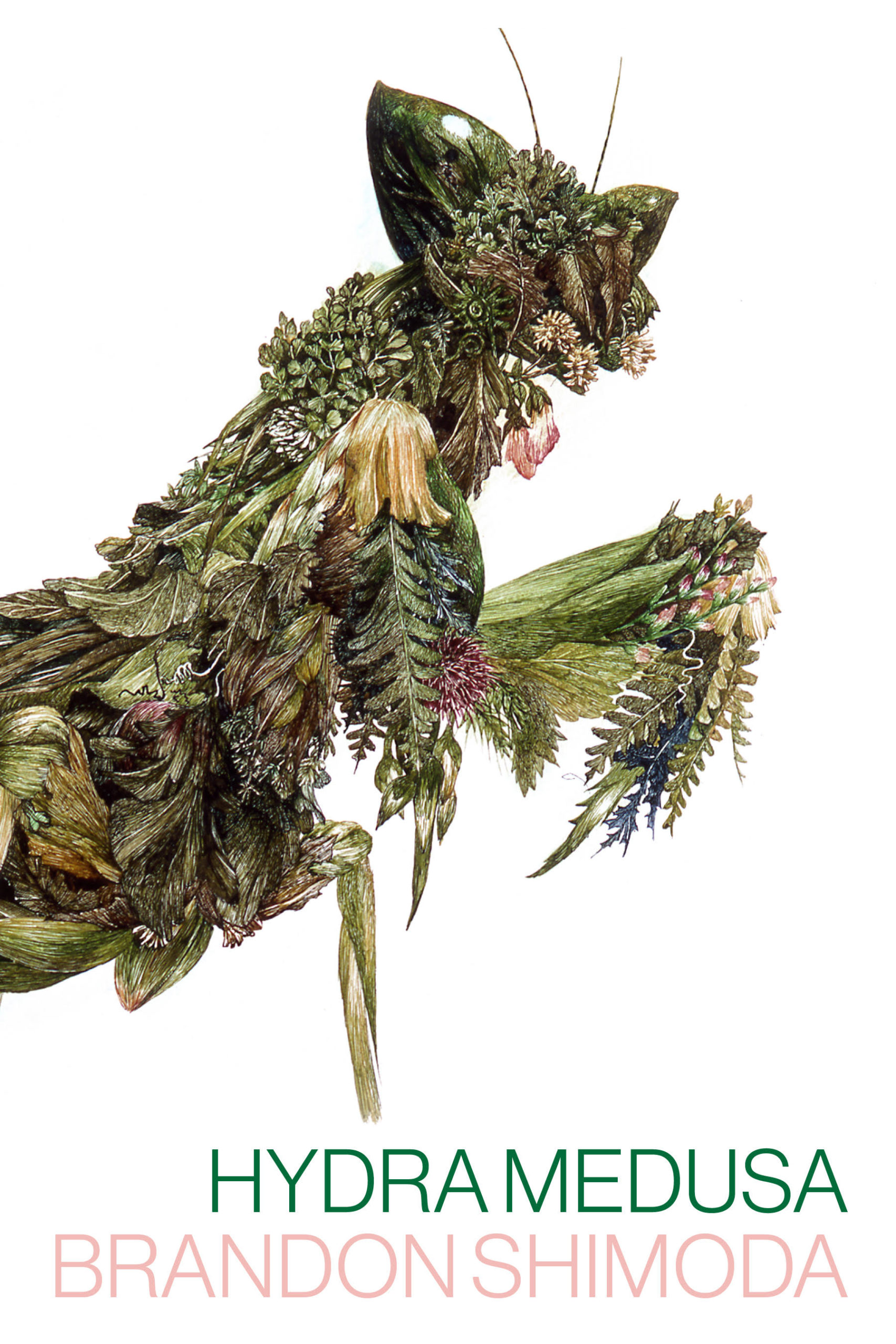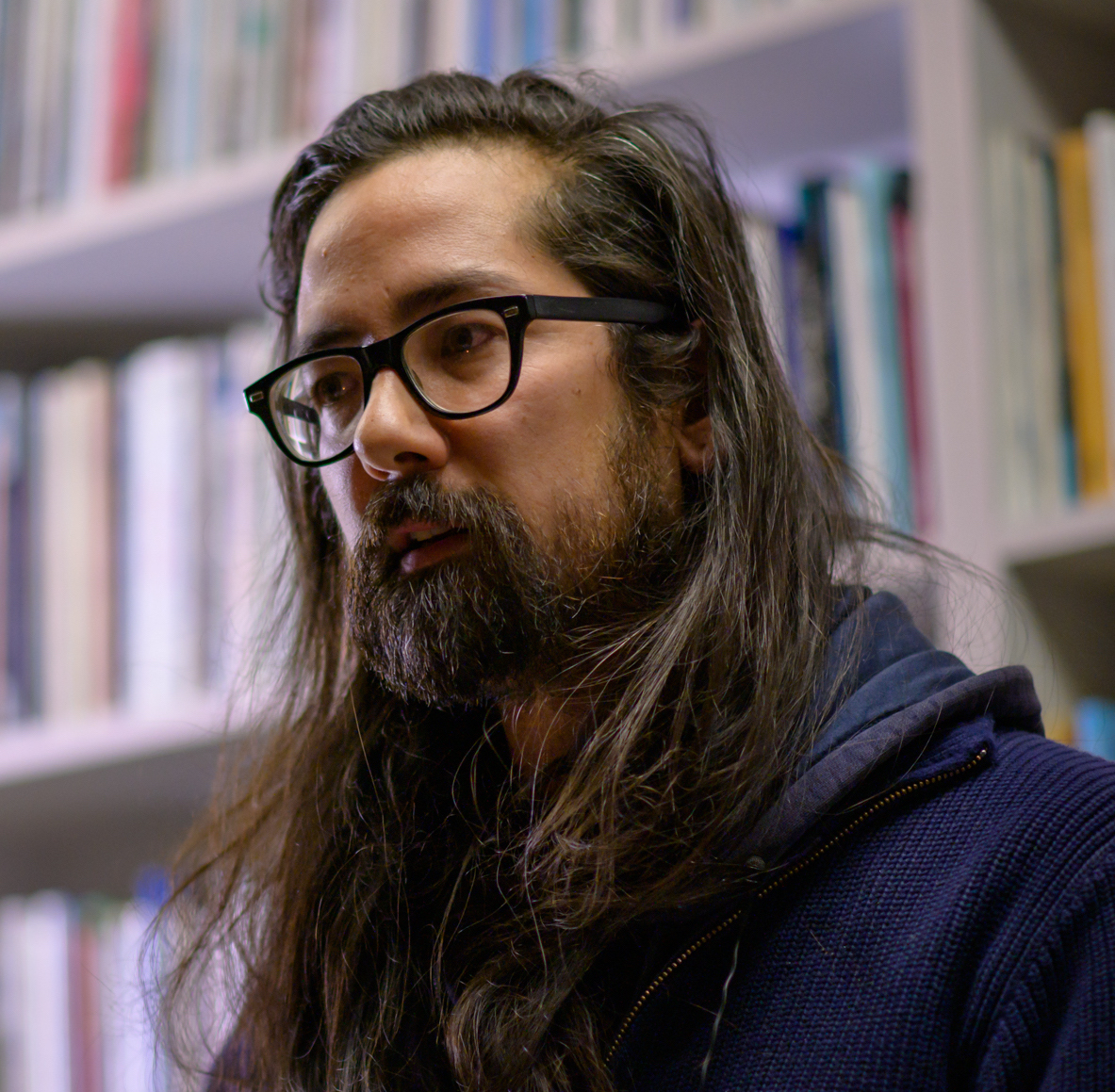The last poem I wrote before leaving Tucson—where my partner Dot Devota and I lived on-and-off for ten years, and where our daughter was born—was “The Bell,” which appears near the end of Hydra Medusa. I wrote it around 2 in the morning, December 3, 2020. Although we did not leave Tucson until June 2021, I did not, between December and June, write another poem, nor did I write any poems the entire year before December. The pandemic had something to do with it.
Dot and I were sleeping on the floor. Yumi was in the other room. It was raining and windy. We hung a furin, a Japanese wind bell, above our front porch, and it was ringing loudly, sweetly. It kept me awake, in a good way. I was content to just listen, then lines of poetry, unremarkable but quietly unrelenting, came to mind. These were the first lines of poetry I wrote in almost a year:
a bell rang
all night It rang all night
No one slept But listened
to the bell
framed
by empty urgency
I did not read many books in 2020. Lockdown, for me, did not lend itself to that. Dot and I were both working several jobs, raising a child in a two-room apartment. But many of the books I did read became my favorites: Suiyi Tang’s American Symphony, Don Mee Choi’s DMZ Colony, Dao Strom’s Instrument, Jackie Wang’s The Sunflower Cast a Spell to Save Us From the Void, Etel Adnan’s Shifting the Silence, Cynthia Arrieu-King’s The Betweens.
I was listening to Kendrick Lamar’s DAMN. Mostly while driving to get boba—from Teaholic (across the street from the University of Arizona), then, when Teaholic went out of business, Ni Hao on Broadway. When I listen to the album now, I see those streets, I feel them, especially Broadway, numbingly straight, nauseatingly straggly, always under some kind of construction. The music drove through the construction, Kendrick’s voice a sonogram in the sky, “Yah” and “Pride” measuring vitally languid space between palm trees rocketing out of tough grass, “DNA” a study in mining hard minerals fast to uplift unerring compositions on the fly. I used to listen to “Love” on my drives to the community college on the edge of Davis-Monthan Air Force Base, where I taught writing to teenagers, thinking about how the Enola Gay, the plane that deployed the atomic bomb against the citizens of Hiroshima—which was named after the pilot’s mother, Enola Gay—was stored at the AFB a few years after the war, dripping and dribbling its sad, sagging villainy into the dust. Driving those streets was centrifugal, riding the groove of a record then being spun off. Listening to “Feel” felt like writing poetry just by listening:
I feel like a chip on my shoulders
I feel like I’m losing my focus
I feel like I’m losing my patience
I feel like my thoughts in the basement
Feel like, I feel like you’re miseducated
Feel like I don’t wanna be bothered
I feel like you may be the problem
I feel like it ain’t no tomorrow, fuck the world
The world is ending, I’m done pretending
Going back to get the emotion you felt back there. Sometimes going deeper means just going on. Sometimes, when the ratio of tea to milk to sugar to boba was just right, when the chemical messaging in my brain was just right and receptive, the first sip of milk tea would activate something that otherwise lay depressed, if not dormant, inside of me. Like a creature on the sea floor that looks like a rock until it opens its eyes and you realize it is sentient, can see, and is, in fact, the keystone ingredient in the functioning of the universe. The eyes only ever seem to stay open for fifteen minutes or so, but that’s when I do all of my planning, that’s when I make all of my life decisions: while drinking jasmine green milk tea with boba.
Furin are usually hung in the summer, or when it’s hot, but it’s always hot (and getting hotter) in Tucson. The sound of the bell, like milk tea, cools one’s spirits, and the body follows. When it’s windy, viruses spread, or so our ancestors believed when they crafted furin and hung them in the way of the wind. The relationship between furin and epidemics exist in their sound. With it, furin dispel evil, including viruses. The coronavirus was traveling on behalf of everyone, and the bell, that night, was fighting it off.
The paper that hangs from the clapper (zetsu) is tanzaku. It’s the perfect size for a short poem. It’s what makes the bell ring, because the wind moves the paper first. That’s how I feel about poetry. The bell seemed to be both the conscience of the neighborhood and the subtle amplification of my own tired mind. The pandemic reinforced an experience that already defined my life: I lived far away from almost all of my family and friends, so I already never saw anyone, I already missed everyone. The bell summoned a whole population; it was, that night, my moon. The only way to fully integrate it into my consciousness without it keeping me awake was to write alongside it, beneath it.
All of these things are not so much influences as conditions. Although conditions are often the influence. A few hours after I woke up, I emailed “The Bell” to my friend, the poet Farid Matuk. He and his partner, the poet Susan Briante, and their daughter Gianna, were among the only people we saw the first year of the pandemic. They were the relief of the family and friends we never saw, and we’ll be forever grateful. I usually only email poems to people so soon after writing them when it feels like I didn’t write them at all but copied them down from wherever they already existed, taking them down from the air. Then it’s like I’m sharing something that was out there, that I saw, like a coyote eating fast food on the side of the road near Kennedy Lake or a sunset the color of crushed apricots.




